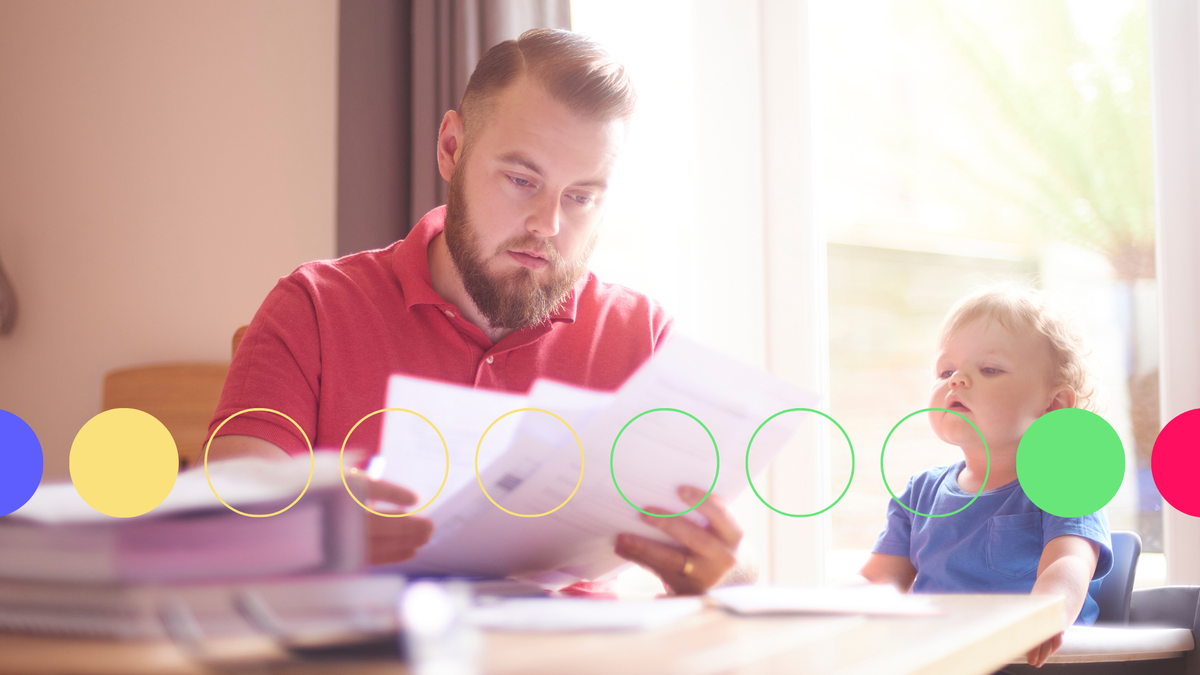How to Deal with Debt: Simple Steps to Get Back on Track
By Boring Money
Coping with debt might make you feel like you're alone in your struggle, but it's actually a very common problem. According to new data from The Money Charity, average total debt per UK household in December 2024 was £66,087, with the average credit card debt sitting at £2,528.[1] Thousands of individuals and families seek help from charitable organisations every year to get back on track with their finances, with Citizens Advice Bureaux in England and Wales recording 1,249 debt enquiries every day in the year to January 2025.[2]

It’s a stark reminder that the cost of living crisis is far from over and that too many people are going into 2025 burdened by problem debt. More and more people are struggling with household bills and energy debts, in particular, as high energy prices continue to take their toll.
But what can you do if you're one of the thousands struggling with debt and where can you get help? It all starts with identifying what sort of debt you're dealing with. The most serious is called 'expensive debt' and this is the kind that literally costs you money unless you're able to pay it off. This can take quite a long time to do, but it is possible. So how can you recognise expensive debt and what can you do to start paying it off?
What is expensive debt?
This is a good question. After all, a lot of debt might not feel expensive if you pay it back over a long period of time. Expensive debt is where you pay back a whole lot more than you initially borrowed. You can gauge whether debt is expensive by looking at the interest rate – if you’re paying 50% or more, chances are, you're looking at the expensive stuff.
There are different tiers of debt. Mortgage debt is usually the cheapest and can be as low as 1-3% (though is typically much higher at the time of writing as the average variable mortgage rates in February 2025 was 7.99%[3]). You pay a mortgage back over a long time too, so it doesn’t always feel that expensive.
The next tier is usually personal loans, where you’ll usually pay around 3-6%.[4] This moves higher for credit cards, which are usually 10-30%, but some can be vastly more expensive than this too. At the top of the heap are overdrafts, which can top 50%!
Payday loans are a whole different ball game – vastly expensive with huge interest rates. Generally speaking, you should stay far away from these at all costs.
How to deal with debt
First goal - stop it getting worse. If you’re only paying off the minimum each month, you can pretty much guarantee that your overall debt is increasing. Let's say you’ve got £1200 of debt, for which you’re charged interest of 10%. So you’re paying £120 a year or £10 a month on top. That means you need to be paying off more than £120 a year or £10 a month to actually reduce the debt at all - otherwise you're just breaking even or adding to your total amount!
You also need to decide which debt you're going to prioritise paying back first. To do this, get all your paperwork together so you can see all your outstanding debts and look at which ones come with the highest interest rate. That’s the one you’ve got to tackle first. Consider consolidating all into a single loan or using a 0% balance transfer credit card. You’ll pay a initial transfer fee for this, but it should work out cheaper in the end. Just beware that the interest-free period may be time-limited, so make sure you pay it down before the rate jumps higher!
If it’s really bad, consider reaching out to a debt charity (see list of organisations at the end of this article). There are thousands of households tackling debt up and down the country so there's no reason to feel ashamed about asking for help. No-one decent will charge you for debt advice either. If someone is trying to extract cash from someone with a debt problem, consider them a wrong ‘un and avoid.
For anyone worrying about repaying debt, it’s vital to address issues early and seek support to avoid long-term financial hardship.
Why should I bother paying off my debts?
This is an important point. Spread over a long enough period of time, debt can look pretty cheap and may not be making a big dent in your monthly outgoings. However, it’s worth considering that debt matters to your credit rating, affecting your ability to get a mortgage or loans. If it’s really bad, utility providers or phone companies may not even deal with you! Suddenly, life becomes a lot more complicated.
Also, debt means that everything costs more. You're effectively paying 10-15% on top of everything you buy if you make purchases on a credit card and then don’t pay it off each month. As an incentive, think what you could do with the extra cash once the debt is paid off. If you’re no longer giving up £200 in debt repayments, it’s like getting a decent pay rise.
Perhaps most importantly, debt is stressful. It gnaws away and can even cause significant physical symptoms, from disturbed sleep to heart disease. Tackling expensive debt can make a big difference to your mental and physical health as well as the health of your finances.
Where to get help with debt
StepChange
The charity behind Debt Awareness Week, StepChange provides the UK's most comprehensive debt advice service and has a number of resources that can help you out, such as its debt help quiz. You can contact StepChange via:
Telephone: 0800 138 1111
Opening times: Monday to Friday - 8am to 8pm, Saturday - 9am to 2pm (closed on Sundays and bank holidays)
Citizens Advice
One of the largest consumer advice services in England and Wales, Citizens Advice offers comprehensive guidance on what to do if you're facing problems with debt. There are several ways you can contact Citizens Advice:
Telephone: 0800 240 4420
Opening times: These vary for each bureau so check your local branch for its hours - they're all closed on bank holidays though
Web chat: The web chat service is open Monday to Friday, 8am and 7pm (except bank holidays)
If you live in Scotland or Northern Ireland, there are separate Citizens Advice bureaus you can access instead - find them here and here.
National Debtline
Run by the Money Advice Trust, National Debtline is a debt advice charity which helps people dealing with debt in England, Scotland and Wales. You can call, chat on the web or use their handy Digital Advice Tool to access expert debt advice. Details are:
Telephone: 0808 808 4000
Opening times: Monday to Friday - 9am to 8pm, Saturday - 9.30am to 1pm
Debt Advice Foundation
This national debt advice and education charity offers free, confidential advice to anyone in the UK worried about loans, credit or debt. Their free debt advice helpline is open Monday to Friday - 8am to 6pm on 0800 043 40 50.
Civil Legal Advice
You could get free and confidential legal advice, including debt where your home is at risk, if you're eligible for legal aid. More details on this scheme can be found on the GOV.UK site by clicking the link here.

